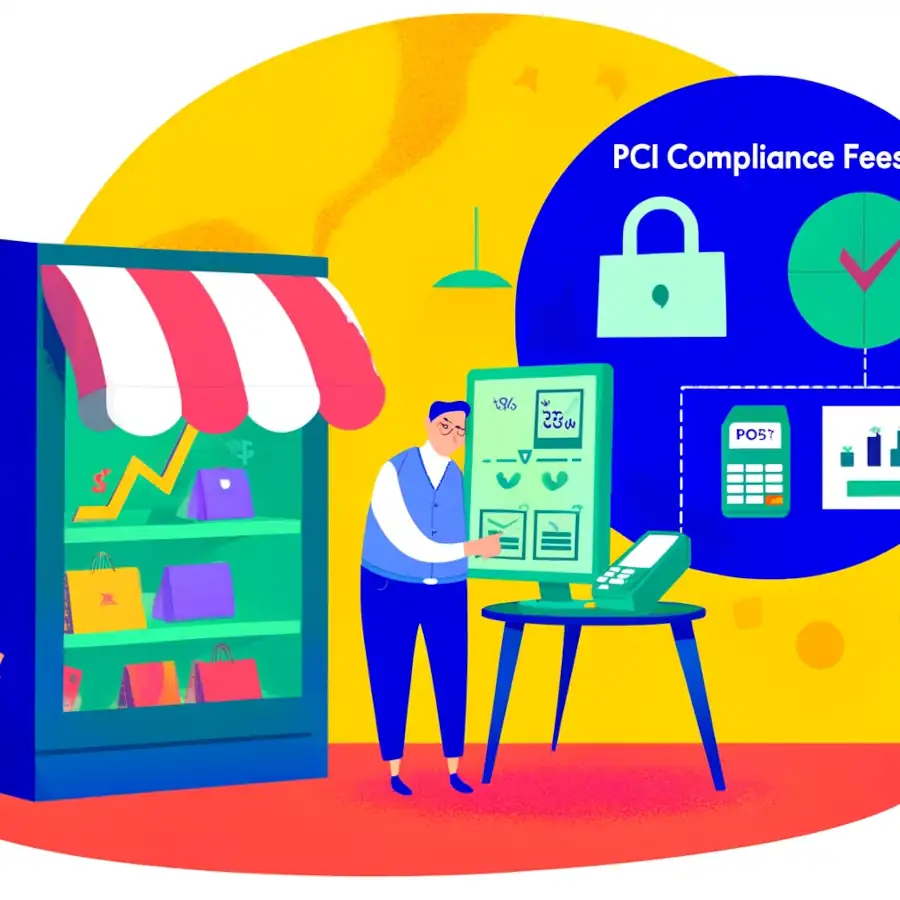
Merchant Account PCI Compliance Fee Explained
PCI Compliance Fees are charges that businesses must pay to ensure they meet the Payment Card Industry Data Security Standard (PCI DSS). This standard was created to increase security around credit card transactions and reduce fraud. When a business accepts credit card payments, it needs to handle and store the cardholder's data securely to protect it from theft or misuse. The PCI Compliance Fee is typically charged by the payment processor or bank that handles the credit card transactions for the business. This fee helps cover the costs associated with maintaining a secure payment environment. It may be billed monthly or annually, and the amount can vary depending on the service provider and the level of security required by the business's transaction volume.
Understanding PCI Compliance Levels
PCI DSS categorizes businesses into four levels based on the volume of credit card transactions they process annually. Level 1 applies to merchants processing over 6 million transactions per year and requires a formal assessment and regular security audits by a qualified auditor. Levels 2 and 3 are for merchants handling 1 to 6 million and 20,000 to 1 million transactions respectively, demanding a self-assessment questionnaire and a vulnerability scan by an approved vendor. Level 4, targeting merchants with fewer than 20,000 e-commerce transactions or up to 1 million total transactions annually, also requires a self-assessment and may need additional scanning depending on the acquiring bank's stipulations. These levels ensure that appropriate security measures scale with the size and risk exposure of the business.

LUCILE MARTIN
I just started online store started using mobile machine for vending as well as phone. Have hardly used the machine due to not service at events I have vended so far. My PCI DSS Compliance Fee is like $119 and more a month. We cannot afford this at this time. What do I do.
Colin H
This is so true. I just noticed a $125 PCI FEE on my account. I use less than 1 transaction per month. What credit card gateway company can I use that will not rip me off like this?
Phillip CPO
It sounds like you would be best suited using a mobile processing app: Top Rated Mobile Processors
Frank Concerto
I spoke with someone from PCI and there is no PCI annual fee. He said maybe they are talking about isa of Mastercard but no such fee from them. None of the major players mandate any annual PCI Compliance Fee. That includes Visa, mastercard,American or Discover. These are fees to merchants from credit card processors to make more money. There are credit card processors who don’t charge these fees who will attest to that and these are the companies merchants should deal with. Of course any kind of fee , no matter what it is called, whether monthly or annually should be subject to scrutiny.
I only signed up as a matter of convenience to the occasional customer that will use a card. I have no storefront operation. I have done less than 1 transaction per month on average and so it would not pay for me to have a processing service who will charge an annual “PCI Compliance Fee” as well as monthly statement fee which can vary in amount and number of fees depending on the processor.
I recently signed with National Merchant Services in Brooklyn NY who has First Data do their processing for them. I signed a contract which showed $.00 in the annual fee box so I signed it. They just took $145 out of my account on Dec 3, 2012 . I did one transaction for $179.64. Of the $145 taken from my account without my knowledge or authorization was $115 for annual compliance, $ 15 for Non-Matching federal Id# which matched the other months and which i have had for decades. The management refuses to refund any of the money. You can see why more and more merchants will become wary of who they deal with and should require written guarantees before signing on. people like that should go to jail just as much as someone picking your pocket on a train or the street.